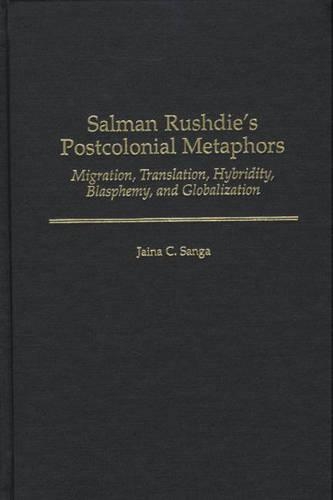
Salman Rushdie's Postcolonial Metaphors: Migration, Translation, Hybridity, Blasphemy, and Globalization
(Hardback)
Publishing Details
Salman Rushdie's Postcolonial Metaphors: Migration, Translation, Hybridity, Blasphemy, and Globalization
By (Author) Jaina C. Sanga
Bloomsbury Publishing PLC
Praeger Publishers Inc
30th June 2001
United States
Classifications
Tertiary Education
Non Fiction
Literary studies: c 1900 to c 2000
823
Physical Properties
Hardback
192
Width 156mm, Height 235mm
425g
Description
Metaphors allow us to describe something new in terms of the familiar. The network of Empire building was sustained through a system of metaphors that depicted the coloniser as superior and the indigenous population as primitive and deviant. The metaphors included images like bringing "light" to dark, barbaric places; "journeying" to unchartered lands and "educating" the ignorant natives. This volume shows how Salman Rushdie reworks and reimamgines colonial meatphors in his postcolonial novels. The study looks at five overarching metaphors in Rushdie's writings: "mitgration" or the transfer of people and their idealogies; "translation", the process of representing someting from one language to another; "hybridity", the fusing together of disparate cultural elements; "blasphemy", the desecration of sacred beliefs by altering their representation and "globalizaton" the homogenisation of cultures. By reconstructing these metaphors in his novels Rushdie challenges the established colonial ways of understanding the world, undermines the imperialist power structures and introduces alternative visions of reality.
Author Bio
Jaina C. Sanga is Adjunct Professor of Cultural Studies at Southern Methodist University and has previously taught at Cleveland State University, Cuyahoga Community College, Georgia State University, and Kennesaw State University._She has presented papers at several conferences worldwide, contributed to books and is editor of South Asian Novelists in English to be published by Greenwood.
